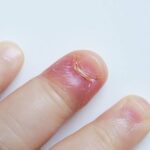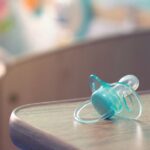By Dr. Kim Dennis
Medical professionals have long recognized the many physiological differences between men and women. One area of increased interest is how women experience addiction to drugs and alcohol. This is highly relevant because, according to the Federal Center for Substance Abuse Prevention, about 2.7 million American women abuse alcohol or drugs; this translates into one-quarter of all abusers. Even more significant is that women are the fastest growing segment of substance abusers in the United States today.
Women and men approach substances differently and react differently once involved with them. Men typically use drugs and alcohol more than women, except in the area of prescription medications. Whereas men turn to substances for reasons such as risk taking, women are more driven by the desire for mood alteration and stress reduction. Once involved with drugs or alcohol, women become addicted faster and progress in the disease more quickly than men. This is referred to as telescoping. Additionally, women seem to have a greater sensitivity to the effects of stimulant drugs such as cocaine and amphetamines. Females also metabolize alcohol less efficiently than men and because their bodies contain less water and more fatty tissue, alcohol absorption is increased.
Women and Recovery
Women are less likely to enter treatment than men. Frequently, this reluctance is predicated on shame and embarrassment or simply underestimating the severity of the addiction. For mothers, there exists the very real fear that if drug or alcohol addiction becomes public, their children may be taken away from them.
At Timberline Knolls, we know recovery is highly individualized. We also believe certain steps must be taken to provide the best possible chance for sustained recovery. These include:
- Getting Honest. First, women must acknowledge the addiction, then they must move out of the denial regarding the enormous impact of the disease on all areas of their lives. It means recognizing that addiction is a family disease and ultimately a spiritual disease.
- Committing to Continued Self-Discovery. Real recovery is far more than simply discontinuing use of alcohol or drugs. Women need to identify the “real” emotions that led to chemical dependence in the first place. These are emotions such as loneliness, rejection, sadness, or unidentified and unhealed trauma. Then, they must identify new healthy coping skills to deal with negative feelings because these emotions present themselves again.
- Help Is Required. Women need to recognize that they are powerless over their addiction, and they cannot walk the recovery road alone. Support is critical. There are online support groups, recovery websites, 12 step meetings, faith-based groups and not-for-profit organizations dedicated to helping people recover.
We know women are more involved with alcohol and drugs than ever before. Therefore, the more we grasp the “hows” and “whys” of women and addiction, the better we can serve and treat this growing population.
Pennsylvania Parenting Magzine is the ultimate resource for parenting news, opinions, articles, and events across the commonwealth of Pennsylvania.
We offer moms and dads stories that are timely, informative and reader-friendly on important issues such as childcare, family life, education, adolescence, motherhood, and teens. You’ll also find fun, easy and inexpensive family activities and events.
Pennsylvania Parenting Magzine reaches about 5,000 visitors per month. Our email database is comprised of 10,000+ moms and dads, while our social media reach is over 8,000 connections across the country.
For more information, please contact our managing editor, Daniel Casciato, at writer@danielcasciato.com.






